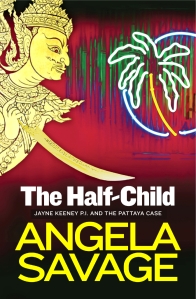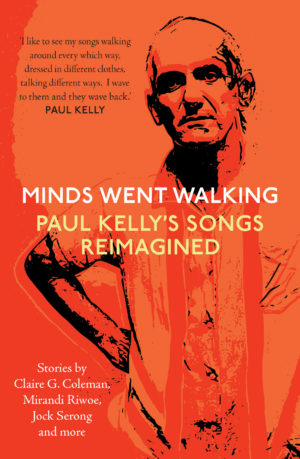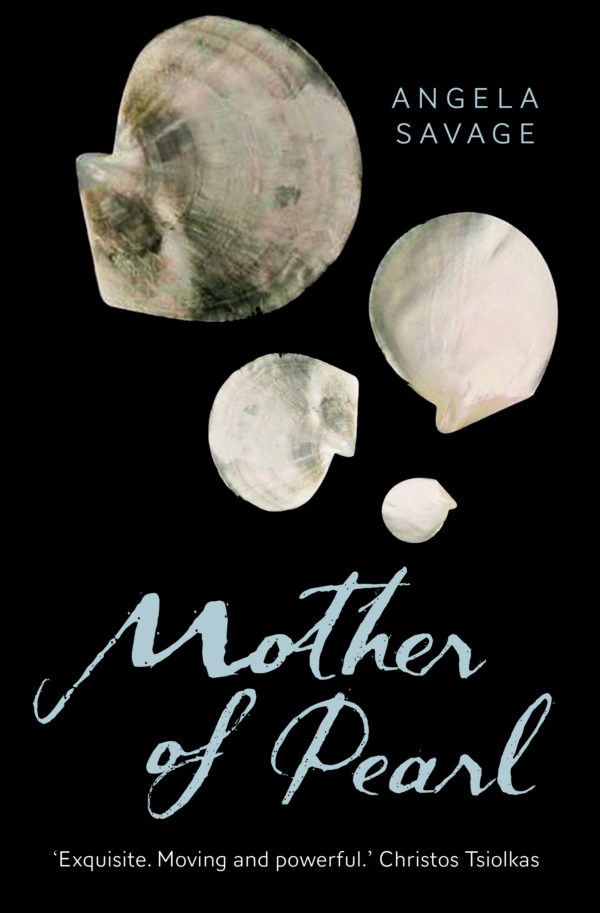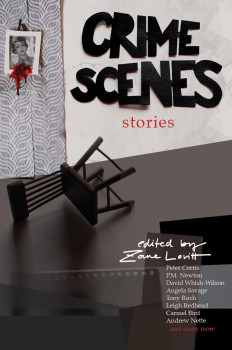The Sunday Age today ran an article today about a raid on an orphanage in Cambodia called Love in Action (LIA), run by 71-year-old Australian woman Ruth Golder.
According to journalist Lindsay Murdoch, LIA was raided by 17 Cambodian government officials, police and representatives of the anti-human trafficking organisation SISHA (South East Asia Investigations into Social and Humanitarian Activities) after reports of beatings and neglect.
Mrs Golder, who has worked with children in Cambodia for the past 13 years, denied reports of abuse and neglect, though admitted her orphanage was not registered with the Cambodian government.
According to the SISHA website, 21 children were rescued while seven remain unaccounted for; Mrs Golder says they were sent back to their families in the Cambodian provinces.
The orphanage sector in Cambodia is a growth industry, increasing 65 per cent since 2005. While there are 269 registered orphanages in Cambodia, more than that number again are estimated to operate outside of government regulation.
Significantly, 72 per cent of the children living in Cambodian orphanages still have parents.
 It can be hard for those of us in wealthier countries to get our heads around a statistic like that. How is it possible that the vast majority of children in Cambodian orphanages have parents? Isn’t calling them ‘orphans’ a misnomer?
It can be hard for those of us in wealthier countries to get our heads around a statistic like that. How is it possible that the vast majority of children in Cambodian orphanages have parents? Isn’t calling them ‘orphans’ a misnomer?
Indeed, it would be more accurate to call these children ‘boarders’ rather than orphans. They are placed in institutional care by families too poor to raise them, but who hold out hope that a change in circumstances will some day enable them to reclaim their children.
It is not hard to imagine how such children might be vulnerable to the whims of unscrupulous orphanage operators. Indeed, it was precisely by imagining a scenario in which children who were not genuine orphans were put up for adoption that I came up with a major part of the plot for my second novel, The Half-Child.
The orphanage in my novel is located in the coastal Thai town of Pattaya and is run by an American-born, evangelical Christian called Frank Harding, whose mission is ‘conversions’:
Not in the first instance from Buddhism to Christianity — though that remained the ultimate goal — but to convert babies and toddlers languishing in institutional care into orphans eligible for inter-country adoption.
Whether Mrs Golder’s orphanage was operating along these lines is anyone’s guess, but I was interested to note on one of the few functioning pages on the LIA website that Love in Action “is a charity based on Christian values which aims to show the people of Cambodia what caring & love really means.”
(Is it just me, or does anyone else bristle at the idea that parents prepared to suffer the heartbreak of surrendering a child into institutional care for the child’s sake need to be shown “what caring & love really means”?)
Reading a blog post by someone who volunteered at LIA is likewise eerily reminiscent of the characters in my novel, notably Australian volunteer Maryanne Delbeck who in The Half-Child wants to be part of Frank Harding’s campaign to convert ‘boarders’ into ‘orphans’. The real-life LIA volunteer says of the children, “best of all, the[y] come to know about the love of Christ.” Or as Frank Harding puts it in the novel: “the ends always justified the means when it came to saving souls.”
While my novel may be set in a neighbouring country, the report on the LIA raid in Cambodia makes me think my made-up story wasn’t far from the truth.
The Australian-registered not-for-profit organisation SISHA, run largely by former police with anti-trafficking experience, claims the raid against LIA shows the Cambodian government is “serious about moving against orphanages that have done what they liked without answering to anybody for years.”
I hope they’re right.
Follow up post here.







Angela – What a frightening story! I’m glad the truth is coming to light but, just as I did when I was reading your novel, I feel so terrible for those little children. It’s a complicated situation to which there is no easy solution, but I hope that at least this will call more attention to it. And it’s a bit eerie how closely reality has paralleled your story…
LikeLike
Reluctant as I am to use a case of real suffering to plug my book, Margot, the parallels between this story and the plot of my novel The Half-Child are almost too close for comfort. I hope people take away a sense of how important it is to check the credentials of organisations they donate to: according to SISHA, LIA receives most of its funding and volunteers through church groups in Australia.
LikeLike
During a recent visit to Cambodia I noted that tourists were asked not to visit orphanages many of whom parade attractive children to encourage donations..It is so damn sad in a beautiful country where sadness is endemic
LikeLike
I’m glad you mentioned that campaign, Haydn. Friends International in collaboration with UNICEF have produced an excellent website advocating for an end to orphanage tourism here: http://www.thinkchildsafe.org/thinkbeforevisiting/
LikeLike
Why raid an Australian run orphanage, Angela. They are hardly likely to be traffickers are they?
What about the hundreds of Khmer run places where abuses are likely to be far worse.As for the licencing issue, which corrupt outfit runs the licencing?
I shuddered when I read that older children were going into Khmer care, does this mean the government run rape camp down Highway 3.
Just as an aside Gina Rinehart supports SISHA, its a pity that she treats her own kids so badly.
LikeLike
Thanks for your comment Humphrey and believe me, I share your concerns. While I don’t have much confidence in the Cambodian government’s respect for the due process of law, I find the unregulated nature of the orphanage industry in Cambodia and the impunity with which many foreigners operate to be highly problematic.
That said, I don’t know why this particular Australian-run orphanage was targeted, though it’s not the first SISHA claims to have helped shut down. In November 2012, the Children’s Umbrella Centre Organization, backed by a US outfit, was closed following SISHA investigations.
I’d be interested to know what proportion of the estimated 500+ orphanages in Cambodia are run by foreigners, and whether SISHA’s strategy in targeting these organisations is to pave the way for investigations against locally run operations.
LikeLike
I would suggest that a small proportion of orphanages are run by foreigners, most are run by cunning Khmers. At least the foreigners have philanthropic motives, not looking to make a profit.And dont worry about the Khmer parents, they have far too many kids to clothe and feed.Sometimes the child or baby brokers pay them for the kids so they dont care too much.Obviously there are parents who seek access to their children, often denied by unscrupulous operators.SISHA is only going after easy targets, they used to claim to be more anti the sex trade but that is dangerous because local politicians and police are involved.
They simply pay government departments and the police totake part in a raid. No official in
Cambodia will do anything for nothing.I know of an orphanage, khmer run, that is dodgy.It is supported by a group in Perth who otherwise do very good works, Gina provides some funding to this group as well, bit of a conflict there in my opinion.
I have a friend who works as a volunteer for an australian anti trafficking organisation, he inspected the place SISHA busted about two years ago- he didnt see any problems.
And the hypocrisy of UNICEF who fund the Cambodian government rape camp is incredible, some general growing very rich from that one.
Cambodia has far too many children, husbands are abusive and families poverty stricken.One can buy a black baby for $50 and a whiter baby for $100 with the papers, what can poor mothers do?
People like SISHA can tinker at the edges whilst living like kings in Phnom Penh but only a radical change from the top down will make a difference, and that is never going to happen.
But dont feel too sorry for the Khmers,they are mostly greedy, self serving people who willne er challenge authority.Perhaps understandable after thirty years of war, we cannot ever really understand them.
LikeLike
Humphrey, I respect your opinions and I share some of your concerns. But I don’t share your cynicism about Cambodian people as a whole. I worked in Cambodia between 1992-1998 and lived there in 2008-09 and while I agree that the system is fraught, my experience is not that the Khmers ‘are mostly greedy, self serving people.’ My experience is that the Khmers are mostly decent people who deserve a better government than the one they have. No doubt the same could be said about many peoples in SE Asia.
I believe there is value in encouraging donors (organisational or individual) to check the bona fides of any organisation they donate to. Clearly, being run by foreigners, or run by locals, or espousing Christian values, are not in themselves reliable measures of service quality.
LikeLike
I have donated to and helped a number of orphanages in Cambodia and adjacent countries, all of which I have visited and checked out personally. Some were run by Christians, some by Buddhists, and some by Communists. I agree that there are many abuses in orphanages where kids are often used as pawns and I think donors need to research the orphanage and the situation in the country.
I think your attack on this orphanage was overly simplistic. You stated, “(Is it just me, or does anyone else bristle at the idea that parents prepared to suffer the heartbreak of surrendering a child into institutional care for the child’s sake need to be shown “what caring & love really means”?)”. I have met many of these “orphans” who still have one or both parent living and heard their stories. Many of the parents got divorced or the wife died. The husband remarried and the new wife doesn’t want the kids around. The kids became “throw aways”. Many more of the kids are kids that are at risk of being trafficked by their families, or being raped by their father, uncle, or grandfather. There are some kids put in orphanages by loving parents that want a better life for them, but of the hundreds of orphans in SE Asia that I have personally met I only know of a very few cases of loving parents putting them there.
One of the long term effects of the trauma suffered by so many in Cambodia is a damaging of the natural affection of a parent for their children. That is one of the reason human trafficking is so prevalent in Cambodia. Most trafficking in Cambodia is parents selling their own children.
I don’t condone many of the things I see being done at orphanages, but there are many orphanages doing a great job and giving a lot of kids chances for a better life. May of the people running these orphanages are doing it at great personal cost. If more emphasis was focused on giving some credit to the people and orphanages that are doing a good job, maybe we could raise the bar.
LikeLike
I agree with Angela here on non-Cambodians having to teach Cambodian families “how to love” children. I think that is insulting.
Sometimes people are forced to give up children, although they don’t want to, out of economic desperation. The New York Times just ran a story a few months ago telling of Ukrainian parents putting their children into the government’s care because they could no longer feed and house them due to the affects of the global recession. This, too, is happening in Greece; mothers put their children into government care so they can be fed, as unemployment is so high.
The situation with unscrupulous “boarding” and “adoption” organizations is always suspect.
There are constant scandals. A French court recently sentenced some so-called humanitarian workers to jail because they took children from Darfur, called them “orphans,” and brought them to France. Turns out they weren’t from Darfur and weren’t orphans. So jail for some of them.
Latin America has a problem with unscrupulous foreign adoptions. Governments have cracked down.
And to raise the idea about “Christian” agencies? After the horrific 2010 hurricane in Haiti, lots of “Christians” went there allegedly to help children. Some people were arrested and sent back to the U.S., as economic interests were at play and not concern for children. The Haitian government and U.N. groups warned of dangerous traffickers and dishonest child brokers lying about their goals, even showing beautiful brochures with, as it turns out, completely bogus photos of nonexistent homes, swimming pools, etc.
I think every government and honest agency has to investigate these foreign “boarding” and “adoption” brokers; many are dishonest and in it for the buck, and using the genuine poverty and misfortune of parents to prey upon the children.
LikeLike
At what stage did she say they had to be a non-Cambodian to teach them how to love? Also having worked in Cambodia myself, and in-fact at LIA (not really sure what to believe about that story, to be honest) there are orphanages within Cambodia, that are in-fact run by Cambodians. And actually, my experience with Cambodian locals is that they are indeed loving, caring people.
LikeLike
I think we are in furious agreement on that point about the capacity of Cambodians to love and care for their own (and others’) children, Alex. The suggestion that non-Cambodians needed to teach Cambodians how to love was implied by LIA’s mission statement and suggested by other commentators on this site.
LikeLike
P.S. I thank Jayne Keeney for her contribution to my education on these issues from both Behind the Night Bazaar and The Half-Child. Bazaar showed the extreme poverty, which could lead to some parents, reluctantly and broken-hearted, putting their children into a trafficking situation just so the family could survive. “Poverty” is as the root of it said a great character, Didier.
Also, the marketplace: If there were no market for babies and children, if finances weren’t involved, there wouldn’t be a motive in all this, other than perhaps some ultra-missionary zeal — which is not a reason to take people’s children away permanently.
LikeLike
In Cambodia most children that are trafficked are sold by their parents. The most common reason is to pay a gambling debt, buy a tv, or buy a motorcycle. This have little to do with extreme poverty. I have been in one village where the parents throw a party when they sell a child. The idea that poverty is the root problem is totally untrue.
The reason non Cambodians need to show Cambodians how to love their children is not because the non Cambodians are better or smarter. It is because many of the Cambodians have been so traumatized by war and genocide that it is hard for them to love. The Khmer Rouge killed off most of the educated people in Cambodia, so they need help from outside Cambodia. I can’t understand how you can be so offended by people wanting to help the Cambodian people to overcome the trauma they have suffered. Helping them to love again is part of that process.
Loving parents giving up their children in hopes of a better life makes a good novel, but if you think it represents what is actually happening in most cases, you are sadly mistaken.
I would suggest learning more facts before you become so critical. Talk is cheap. Are you actually doing anything to help the situation or are you merely talking about it?
LikeLike
Bruce, I have attempted to address some of the points you raise in a follow up post here. I don’t expect we will see eye to eye on this subject, but I trust we can exchange opinions without getting personal, yes?
LikeLike
Pingback: Orphanages: An afterword | Angela Savage
I have to say there is no way that one can paint a whole country of people with a broad brush like that. Many people who have been victims of war and related atrocities value their children as diamonds, the most prized;
I say this as someone whose grandparents fled anti-Semitic pogroms in czarist Russia, and who knows children of Holocaust survivors. The children are everything, cherished, encouraged; they represented the future, free of the horrors.
And this is true of so many peoples today around the world; children are valued.
LikeLike
Bruce hein and humphrey hollins are telling it like it is. You should listen to them. Are there Khmers who care about their children? Of course. Are there many, many who see their children as just a resource. Absolutely. These children are brought up to think they owe their parents big time. It is part of the culture so they will do whatever their parents want, including being sold. In one of the shelters i support a number of the children under the age of ten have been raped by a drunken father. Quite common. When men remarry the new mother is often a terror to the children and often convinces the father to get rid of them by placing them in brothels or sweatshops to send money back to the family.
The khmers lost their way after the destruction of any morality by the khmer rouge and pol pot. It takes outside agencies without the cultural baggage to give them a chance to rediscover their humanity. Can some Khmers do the same? Yes, but not enough. They need help.
Btw much of the lindsay murdoch article was wrong. Have a look at the penhpal coverage of it. Don,t belive anything murdoch writes as he so often gets it wrong but you never hear about it since he is unlikely to write an article criticising himself or saying ‘whoops, wrong again’
LikeLike
Leon, I will have a look at the pehnpal coverage — thanks for that. Having lived in Cambodia, I know how hard it can be to get the facts right and how easily rumours are substituted for information.
Your point is well taken that standards of parenting in Cambodia are mixed, though I still stand by my original comments. The example you cite above of the new wife terrorising her stepchildren and convincing the father to get rid of them into brothels and sweatshops is in fact almost identical to what happened in Australia last century. Many of the Forgotten Australians, children who ended up in institutional care, were the product of first marriages, dispatched by jealous step-parents who wanted them out of the way. Many worked in sweatshop conditions — for example, in the laundries of the Abbotsford Convent in Melbourne — and while they might not have been sent to brothels, many were subject to sexual abuse in these institutions, as the Royal Commission in Institutional Responses to Child Sexual Abuse currently underway in Australia so tragically demonstrates.
LikeLike
I guess angela it just demonstrates that people all have the potential to be saints or sinners and maybe in time cambodia will improve. I hope so but they have a long way to go but then australia has gotten better. It just took time and people who cared
LikeLike
Well said, Leon. The rule of law also made a difference in Australia, the government wresting back control of statutory care from a largely unaccountable charitable sector. Sadly, I suspect it will be a long time before we could advocate entrusting the Cambodian government with such responsibility.
LikeLike
To Humphrey, on behalf a Cambodian, i would like to ask you that how long have you been living in Cambodia???How much you know Khmer????? You look down on my people too much especially you look down on Cambodian mothers. I agree that there are some people sell their children but have you ever put yourself in their situation? Why they do it? Could you imagine their feeling, how hurt they were? Or do you think they are happy to do it? Do you think only YOU, foreigners, that love the children? and WE, Khmer, don’t? Khmer are heartless? No feeling? Greedy? Self serving? Don’t use one or two example to evaluate every mothers here.
Also, I agree that there are lots of corruption here and there are a lot of people are running orphanages as bussiness but also there are many people really do it for children. Also, how could you say that the centers or orphanages that are running by foreigners are not for profit??? Of course lots of them helping our children a lot and I really thankful and appreciate them but may be I live in my country longer than you so i know better than you that not all the foreign-run centers are non profit. I recommend you to study more before you talk to insult somebody. You don’t understand Cambodian mother’s feeling is ok but I hope you understand your mother’s feeling!!!
LikeLike
Very, very well said Sofia!
LikeLike
Richly ironic given LIA and SISHA are birds of a feather! Both founded and run by psychopaths abusing notions of “child protection” to enrich themselves venally at the expense of feeble-minded Westerners who are so delusional they actually imagine they are helping anyone other than the psychopath. Sadly the world seems filled with such delusional, gob-smackingly gormless, people. What do they say about fools and their money???
LikeLike
Certainly an article in the Australian media yesterday suggests you are right about both the problems with both LIA and SISHA, Matt: http://www.theage.com.au/national/dodge-city-20140210-32amy.html
LikeLike